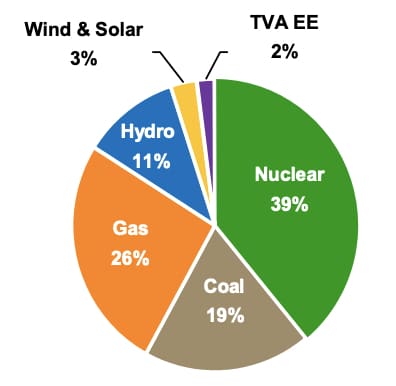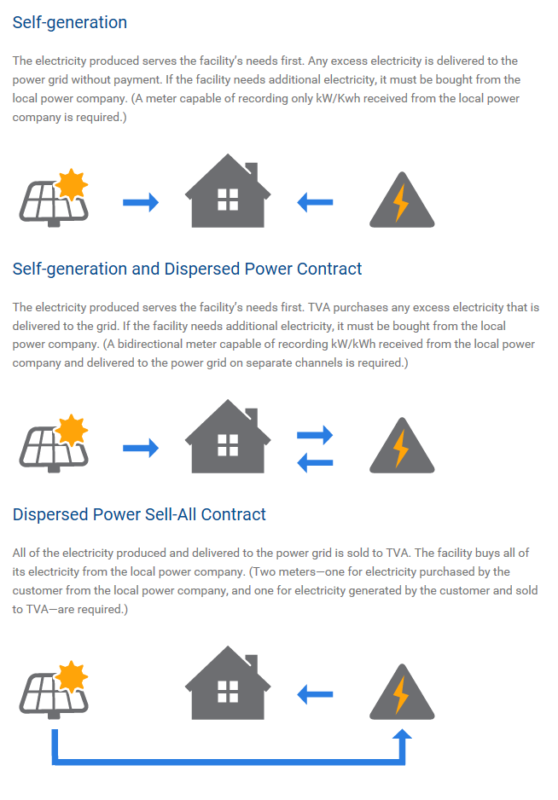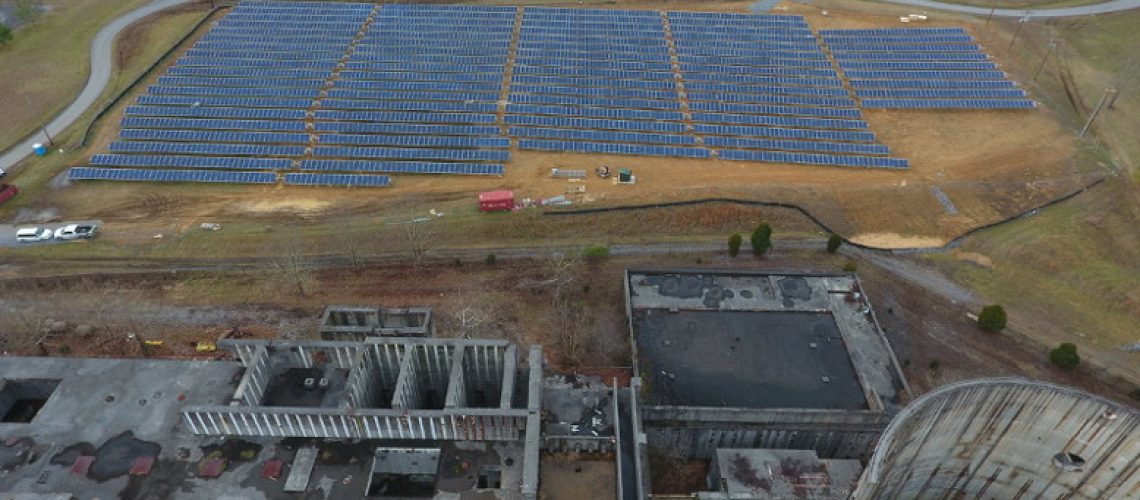There is a dearth of solar policy in Tennessee, and development has been relatively dead in the water since 2019. While distributed rooftop solar has little support, corporate-backed utility-scale solar is expected to rise.
Tennessee is home to utility Tennessee Valley Authority (TVA), a government-owned utility that is famous for waging historic landmark court cases against the proliferation of clean energy. There is a distinct lack of support for distributed rooftop solar for small and medium businesses and homeowners. Instead, the state’s small solar exposure is largely characterized by large-scale projects built for corporations in pursuit of environmental and social governance goals (ESG).
Tennessee Valley Authority (TVA), serves 10 million people across an 80,000 square mile territory in the southeast U.S., extending beyond its home state borders. The company stated goals of targeting up to 10 GW of solar by 2035, and more than 200,000 EVs on roadways by 2028. The utility expects to have about 2.8 GW of solar in TVA operation by 2024.
However, the company’s 2021 sustainability report disclosures reveal that TVA owns only 1 MW of operable solar capacity and reports no ownership of wind energy assets, as of the FY 2021 report. TVA instead has developers play the role of owner-operator, so that they can access the federal investment tax credit incentive, an option that TVA, as a government entity, cannot access.
While TVA released a request for proposal (RFP) this summer for up to 5 GW of new clean energy, much of it is expected to be nuclear energy and hydropower, which already represents a large part of the utility’s asset base. TVA currently has 5.38 GW of renewable energy capacity, nearly all of which is hydropower.
(Read: “Lawsuit challenges TVA’s anti-solar ‘never-ending contracts’ with its utility customers”)

TVA said its Green Invest program has led to nearly $3 billion in solar investments since 2018. A large driver of growth in this program is through contracts with large corporations like Google, Meta (Facebook), and others.
In total, the Solar Energy Industries Association (SEIA) said Tennessee has 608 MW of installed solar capacity through Q2 2022. The state employs over 4,000 people in solar, and there has been an estimated $918 million in solar investment in the state, said SEIA.
Incentives
Tennessee does little to support the buildout of distributed, rooftop solar, which is hailed as a solution for increased grid resilience, improved environmental impacts, and bill savings for individuals and small businesses.
Currently, the state does not offer net metering, or the buyback of excess solar production, which is often critical to the economics of rooftop solar. It also has no standardized rules for interconnecting a rooftop system with the electric grid. TVA instead offers a program called dual metering, which is explained in the graphic below.

Tennessee has a solar easement law, which protects a homeowner’s right to have open access to the sun on their roof, preventing others from constructing objects that shade panels.
While most states allow solar to be property tax-exempt, instead caps the amount that can be taxed. The assessed value increase of your property for tax purposes may not exceed 12.5% of your installed costs for solar. It also exempts sales taxes for equipment and materials purchased by commercial and industrial customers.
The most support for solar will be found at the federal level. The Investment Tax Credit (ITC) was just extended long-term and added a direct payment provision. The ITC provides a 30% credit for the cost of the installed system.
Landmark project
The 150 MW Elora Solar project, which was led by NextEra Energy Resources, marks one of the largest solar installations in the state. The project reached commercial operations in May, 2022. Construction of the 500,000 panel system lasted 17 months and created approximately 250 jobs.
The project was in partnership with Facebook to power operations at Meta’s datacenter hub in northwest Huntsville, Tennessee, northwest of Knoxville.
“TVA is building a greener future that leaves no one behind in the new clean energy economy,” said Doug Perry, TVA senior vice president of commercial energy solutions. “This public-private relationship demonstrates the strength of TVA’s community energy model to attract high-quality jobs into the communities we serve while helping businesses meet their sustainability goal.”
Up next
pv magazine last stopped off in Kentucky to survey the landscape of solar buildout, and we’ll next travel to Alabama.



